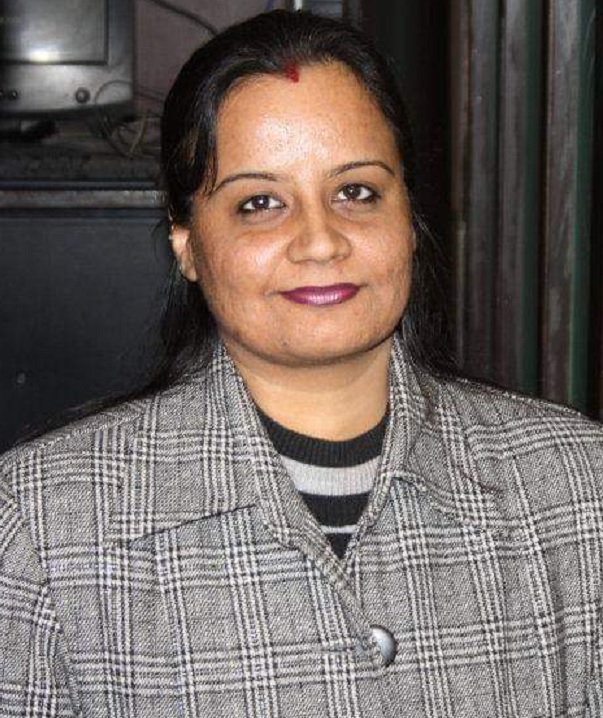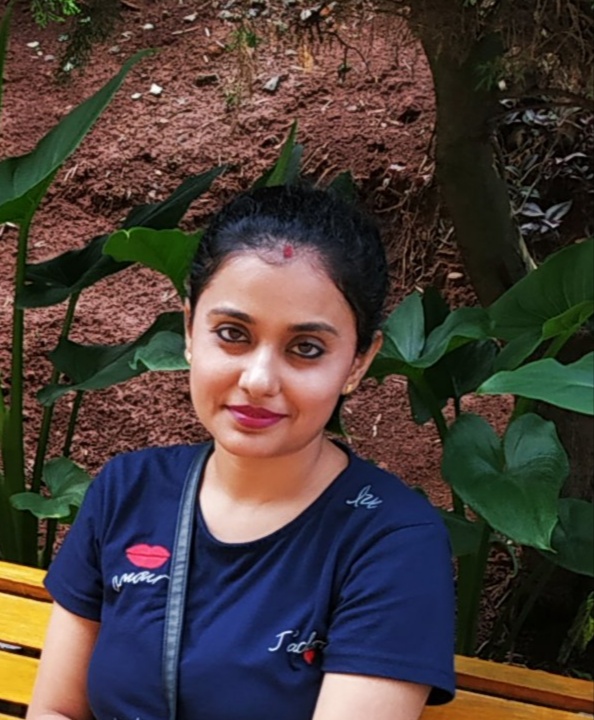UPSC Management Optional Coaching for 2025
Are you targeting the UPSC Civil Services exam with Management Optional in 2025 or 2026? Keep reading this page to understand, how we will make you put up a great score like 300-325 in Management optional. (watch this video to understand our overall approach for Management optional).
What all will you get
(i) 12 concise Printed Books covering 12 units of syllabus (plus access to e-books)
(ii) Video classes of 350 hours (including 20 special classes on numericals)
(iii) All PYQs solved from year 2000 to 2024 (both in printed books and online)
(iv) 6 Full length mock tests with evaluation and answer writing
(v) Robust doubt solving system – response within 2 working days
(Check out this video to understand how everything looks like).
Get in touch with our team. We will give you free access for 1 day for free and you can assess yourself.
Mock Test Papers and Answer writing
We will give you 6 Full-length practice mock tests, followed by evaluation and answer writing practice by experts. Check out the quality of (i) Question paper (ii) Answer booklet and (iii) Model answers, given in the middle of this page. You also have the option of enrolling for only the Test Series for Rs 19500.
(check this video to understand the process of mocks tests and answer writing).
How to Enroll
If you follow the above approach with us, you can depend COMPLETELY on us for coverage of 100% syllabus. Our promise is that the Management optional is our responsibility (You can worry about GS papers).
If interested, get in touch with our team.
If you are confused, about whether you should choose Management subject as optional for UPSC, watch this video.
Confused about Management Optional
Before starting your UPSC coaching with Management as your optional subject, you likely have several questions:
- whether this is the right subject for you?
- is it scoring subject?
- how to begin preparation?
- is there sufficient guidance available in market?
- what kind of marks you can expect?
No need to worry! We invite you to visit our office in Sector 39, Gurgaon, where you can discuss all your concerns.
Please let us know your arrival date in advance by contacting our team, so we can arrange for the appropriate faculty to meet with you.
1. Cover the Syllabus
Preparation-
Video classes covering syllabus
-
12 printed books + e-Books
-
PYQs solved from 2000 to 2024 (printed and online both)
-
Faculty interactions for doubt clearing
-
12 months- Rs 38,000; 24 months- Rs 42,000
* Make sure to read all FAQs before Payment
2. Test Series
Mock tests and Evaluation-
6 Full-length mock tests in printed format couriered at home
-
Model answers of all tests in printed format
-
Evaluation followed by one-on-one session with teacher on answer writing
-
Price- Rs 19500
* Make sure to read all FAQs before Payment
FAQs- Must Read before you enroll
You will get the following:
(i) 12 concise printed books covering 12 units of the syllabus
(ii) Access to e-books on the online Learning Management System (LMS)
(iii) 350 hours of video classes on LMS
(iv) All PYQs solved from the year 2000 to 2024 (both in printed books and online)*
(v) 6 full-length mock tests followed by personalized evaluation
(vi) Ongoing live classes
(vii) Robust doubt-solving system – response within 2 working days
For PYQs from 2000 to 2023, you will get a detailed explanation of questions in the form of printed books, as well as on the online LMS. For papers from 2023 and in the future (2024, 2025 etc), the solved papers will be available online only.
Let’s take any keyword from the syllabus, such as “Line Balancing” from Production and Operations Management.
1. Video Lecture: Start by watching a video lecture on the topic of “Line Balancing.” This will give you a foundational understanding and a visual explanation of the concept.
2. Read Content: Next, delve into the content related to “Line Balancing” in your printed or e-book. This step will reinforce what you’ve learned in video class.
3. Practice PYQs: Finally, review and solve all the Previous Year Questions (PYQs) related to “Line Balancing” that have appeared in exams since 2000. These questions are organized by keyword from UPSC Syllabus.
Once you are done with all keywords of the syllabus, you will go through full length mock test papers.
The following are the steps for the Mock Test Series conducted by Human Peritus:
- You will receive 6 full-length tests in printed format via courier. Each test will contain two papers (Paper-I and Paper-II), resulting in a total of 12 papers.
- For each paper, you will receive three things: (i) Question Paper (ii) Answer Writing Sheet as per UPSC format (iii) Model Answers with detailed solutions.
- Before attempting any test, ensure that you have at least two graph papers and four distribution tables (standard normal, F test, t test, and Chi Square). You can download them from here and take a printout. Download Graph Papers and Distribution Tables.
- Once written, you can send your test to us for evaluation via email as a scanned PDF or by courier. Our teachers will evaluate and send you the marks and comments via email or courier. Although you have both options (PDF or courier), we advise sending it via courier.
- You can send as many tests as you want and as many times as you want. Our maximum turnaround time will be 10 days.
- Once you receive your evaluated test, analyze your performance and review the model answers to understand where you can improve.
- Additionally, for a given test, we will conduct one-on-one online sessions with our teachers. During these sessions, we will discuss:
- Answer writing
- Selecting 5 questions out of 8
- Identifying subjects/topics areas where you need improvement
- How to represent the same answer with better diagrams or better examples.
- There will be 4 one-on-one sessions with each student, discussing any two tests of your choice (four papers).
- Please note that the purpose of these one-on-one sessions is not to “teach,” but to maximize your score based on your current knowledge. For “teaching,” we will politely ask you to join coaching classes.
- Check out this video to understand the complete process of test series.
You will be able to access LMS on any browser on any device (mobile or laptop). There is no need of any mobile app.
You will be able to access the course on any device, but at one time, only one login will work. If you move to another device, it will automatically log out from previous device.
The fee mentioned on the website is final and it includes GST, courier charges and everything else. Beyond it, there are no discounts.
There is no provision of refund in this course. If you are unsure, we advise you to get enrolled for free for trial basis and assess everything.
Any attempt of illegal circulation of content will lead to immediate termination of access to all resources and the fees will not be refunded,
And any attempt to sell Human Peritus content on social media/internet will invite police complaint and subsequent FIR under various provisions of law given below:
- Section63 of Copyright Act 1957 (knowingly infringes or abets the infringement of the copyright)
- Section420 (cheating by the way of false representation) under sections 403, 406, 408, 420, 471 and 120-B of Indian Penal Code 1860 for dishonest and illegal misappropriation of money, criminal breach of trust, cheating, fraud and criminal conspiracy to commit fraud
- Section29, 103 and 104 of Trade Marks Act 1999 (infringement and penalty)
- Section1(2) read with Section 75 of the Information Technology Act 2000.
The online Learning Management System (LMS) has a robust system of doubt clarification. You can post your doubt, as a photo, voice note, video or even type it. The concerned teacher will get back within 2 working days.
We have made available 100% course in recorded videos, you can access anytime on the Learning Management System (LMS)
Parallally, we also conduct live classes for Management topics. You will have 2-3 classes per week either in 4 PM or at 7 PM.
You will get a weekly schedule via email every Friday, with a schedule for the classes for the next week. For illustration, it will be like:
Monday 7 PM- HRM Class,
Tuesday 4 PM- Operations Management ,
Wednesday– No class,
Thursday 10 AM- International Business class and so on …..
Everything about Management Optional UPSC
Choosing Management Optional
Mock Tests and Answer Writing
Should I choose Management subject ?
2024 Paper Analysis – Paper 1
2024 Paper Analysis – Paper 2
Class- Capital Budgeting
2022 Paper Analysis
2021 Paper Solution
Class- Sampling Distributions
Class- Transactional Analysis
Numerical Class- Acceptance Sampling
Class- Pricing Decisuions
Class- Economic Order Quantity
Class- Sampling Distributions
Numericals- Probability distributions
Scan QR code to Chat

Email: contact@humanperitus.com
Phone: 9717781110
Address: Human Peritus, Floor 5, Building C, Unitech Cyber Park, Gurgaon, 122002

Meeta
Meeta scored 99.97 percentile in Code 55 HRM subject of UGC NET. She has more than 10 years of teaching experience in HRM, OB, Labour Laws, Legal Aspects (both Company Law & Business Law), Industrial Relations, Labour Welfare. She is also qualified Company Secretary. She has written a book on Business Studies. In her free time (which she rarely gets), she like painting, sketching and badminton.

Deepak
Deepak is JRF qualified in Commerce subject and is a PhD scholar in Finance from Delhi School of Economics, University of Delhi. Deepak teaches Business Economics and Financial Management, Income Tax. He is also responsible for content creation and updation. Deepak also advises students for opportunities in academics career. He is a Cricketer and loves trekking and rafting.

Ankita
Ankita is JRF in Management subject. She teaches Business Management & OB, Marketing Management, Research Aptitude and Higher Education. She is responsible for content creation and updation for multiple topics. She also assists in marketing at Human Peritus. She has worked as analyst in Commodity and Stock Market. Ankita is also corporate trainer. She likes documentaries and is an avid reader.
Syllabus of Management Optional
This section will give you complete information on the Syllabus of Management Optional for UPSC Civil Services exam. The Syllabus for Management subject consists of total of 12 units, which are divided into two Papers. The Paper 1 has two parts, Part A and Part B. Similarly, Paper 2 has two parts, Part A and Part B.
Thus total 12 units are divided into 4 sub-parts.
Paper 1- Part A: Managerial Function, Organizational Behaviour, HRM (Units 1 to 3)
Paper 1- Part B: Financial Management, Accounting, Marketing Management (Units 4 to 6)
Paper 2- Part A: Operations Management, Managerial Stats, MIS (Units 7 to 9)
Paper 2- Part B: Government Business Interface, Strategic Management, International Business (Units 10 to 12)
The details syllabus for each unit of syllabus for Management subject for UPSC Optional is given below.
- Concept and Foundations of Management,
- Evolution of Management Thoughts;
- Managerial Functions – Planning, Organizing, Controlling;
- Decision making;
- Role of Manager, Managerial skills;
- Entrepreneurship; Management of innovation;
- Managing in a global environment,
- Flexible Systems Management;
- Social responsibility and managerial ethics;
- Process and customer orientation;
- Managerial processes on direct and indirect value chain.
- Conceptual model of organization behaviour;
- The individual processes – personality, values and attitude, perception, motivation, learning and reinforcement, work stress and stress management;
- The dynamics of organization behaviour – power and politics, conflict and negotiation, leadership process and styles, communication;
- The Organizational Processes – decision making, job design;
- Classical, Neoclassical and Contingency approaches to organizational design;
- Organizational theory and design – organizational culture, managing cultural diversity, learning organization;
- Organizational change and development;
- Knowledge Based Enterprise – systems and processes; Networked and virtual organizations.
- HR challenges;
- HRM functions;
- The future challenges of HRM;
- Strategic Management of human resources;
- Human resource planning;
- Job analysis;
- Job evaluation;
- Recruitment and selection;
- Training and development;
- Promotion and transfer;
- Performance management;
- Compensation management and benefits;
- Employee morale and productivity;
- Management of organizational climate;
- Industrial relations;
- Human resources accounting and audit;
- Human resource information system;
- International human resource management
- Financial accounting – concept, importance and scope, generally accepted accounting principles;
- Preparation of financial statements with special reference to analysis of a balance sheet and measurement of business income,
- Inventory valuation and depreciation,
- Financial statement analysis,
- Fund flow analysis,
- Statement of cash flows;
- Management accounting – concept, need, importance and scope;
- Cost accounting – records and processes, cost ledger and control accounts, reconciliation and integration between financial and cost accounts;
- Overhead cost and control, Job and process costing, Budget and budgetary control, Performance budgeting, Zero-base budgeting, relevant costing and costing for decision-making, standard costting and variance analysis, marginal costing and absorption costing
- Goals of finance function;
- Concepts of value and return;
- Valuation of bonds and shares;
- Management of working capital:
- Estimation and financing;
- Management of cash, receivables, inventory and current liabilities;
- Cost of capital;
- Capital budgeting;
- Financial and operating leverage;
- Design of capital structure: theories and practices;
- Shareholder value creation: dividend policy, corporate financial policy and strategy, management of corporate distress and restructuring strategy;
- Capital and money markets: institutions and instruments;
- Leasing, hire purchase and venture capital;
- Regulation of capital market;
- Risk and return: portfolio theory; CAPM; APT;
- Financial derivatives: option, futures, swap;
- Recent reforms in financial sector
- Concept, evolution and scope;
- Marketing strategy formulation and components of marketing plan;
- Segmenting and targeting the market; Positioning and differentiating the market offering;
- Analyzing competition;
- Analyzing consumer markets;
- Industrial buyer behaviour;
- Market research;
- Product strategy;
- Pricing strategies;
- Designing and managing Marketing channels;
- Integrated marketing communications;
- Building customer satisfaction, Value and retention;
- Services and non-profit marketing;
- Ethics in marketing;
- Consumer protection;
- Internet marketing;
- Retail management;
- Customer relationship management;
- Concept of holistic marketing.
- Descriptive statistics – tabular, graphical and numerical methods,
- Introduction to probability,
- Discrete and continuous probability distributions,
- Inferential statistics sampling distributions, central limit theorem,
- Hypothesis testing for differences between means and proportions, inference about population variances,
- Chi-square and ANOVA,
- Simple correlation and regression,
- Time series and forecasting,
- Decision theory,
- Index numbers;
- Linear programming – problem formulation, simplex method and graphical solution, sensitivity analysis.
- Fundamentals of operations management;
- Organizing for production;
- Aggregate production planning, capacity planning,
- Plant design: process planning, plant size and scale of operations,
- Management of facilities;
- Line balancing;
- Equipment replacement and maintenance;
- Production control;
- Supply chain management – vendor evaluation and audit;
- Quality management;
- Statistical process control, Six Sigma;
- Flexibility and agility in manufacturing systems;
- World class manufacturing;
- Project management concepts, R&D management,
- Management of service operations;
- Role and importance of materials management, value analysis, make or buy decision;
- Inventory control, MRP;
- Waste management.
- Conceptual foundations of information systems;
- Information theory;
- Information resource management;
- Types of information systems;
- Systems development – Overview of systems and design; System development management life-cycle, Designing for online and distributed environments;
- Implementation and control of project;
- Trends in information technology;
- Managing data resources – Organising data;
- DSS and RDBMS;
- Enterprise Resource Planning (ERP),
- Expert systems,
- e-Business architecture,
- e-Governance;
- Information systems planning,
- Flexibility in information systems;
- User involvement;
- Evaluation of information systems.
- State participation in business,
- Interaction between Government, Business and different Chambers of Commerce and Industry in India;
- Government’s policy with regard to Small Scale Industries;
- Government clearances for establishing a new enterprise;
- Public Distribution System;
- Government control over price and distribution;
- Consumer Protection Act (CPA) and The Role of voluntary organizations in protecting consumers’ rights;
- New Industrial Policy of the Government: liberalization, deregulation and privatisation;
- Indian planning system;
- Government policy concerning development of Backward areas/regions;
- The Responsibilities of the business as well as the Government to protect the environment; Corporate Governance;
- Cyber Laws.
- Business policy as a field of study;
- Nature and scope of strategic management,
- Strategic intent, vision, objectives and policies;
- Process of strategic planning and implementation;
- Environmental analysis and internal analysis; SWOT analysis;
- Tools and techniques for strategic analysis – Impact matrix: The experience curve, BCG matrix, GEC mode, Industry analysis, Concept of value chain; Strategic profile of a firm;
- Framework for analysing competition;
- Competitive advantage of a firm;
- Generic competitive strategies;
- Growth strategies – expansion, integration and diversification;
- Concept of core competence,
- Strategic flexibility;
- Reinventing strategy;
- Strategy and structure;
- Chief Executive and Board;
- Turnaround management;
- Management of strategic change;
- Strategic alliances,
- Mergers and Acquisitions;
- Strategy and corporate evolution in the Indian context.
- International Business Environment: Changing composition of trade in goods and services; India’s Foreign Trade: Policy and trends;
- Financing of International trade;
- Regional Economic Cooperation; FTAs;
- Internationalisation of service firms;
- International production; Operation Management in International companies;
- International Taxation;
- Global competitiveness and technological developments;
- Global e-Business;
- Designing global organisational structure and control;
- Multicultural management;
- Global business strategy;
- Global marketing strategies;
- Export Management;
- Export- Import procedures;
- Joint Ventures;
- Foreign Investment: Foreign direct investment and foreign portfolio investment;
- Cross-border Mergers and Acquisitions;
- Foreign Exchange Risk Exposure Management;
- World Financial Markets and International Banking;
- External Debt Management;
- Country Risk Analysis


